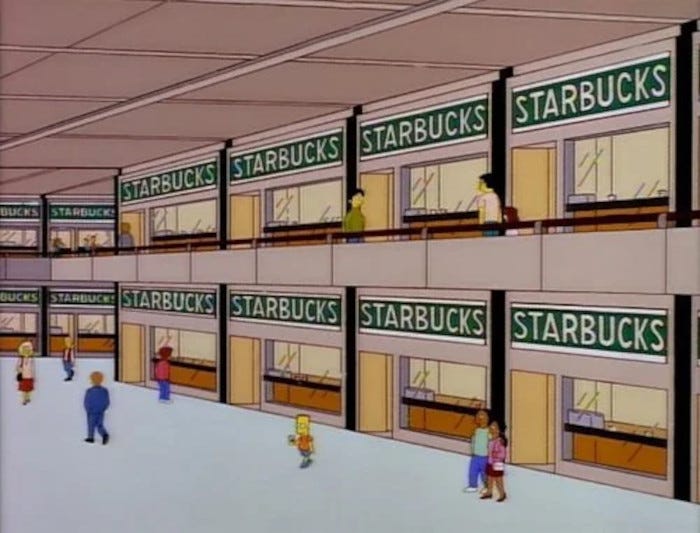The internet’s engine of inequality
This is Sergei, seen here modeling a unit of practical headwear that he got for cheap in a Ukrainian bazaar.

Sergei describes himself as German-Russian which means he has Russian parents but was born and raised in Germany. Given his linguistic blessings Sergei started translating Deutsche to Русские and after six months he was earning a decent wage as a freelancer. When I met him at a hostel in Kiev, Sergei was celebrating the milestone of having earned more than $1,000 in a month for the first time.
I’d never met someone who worked online before; Sergei was the guy who showed me that it’s possible. Like the four minute mile or putting a man on the moon, one of life’s tastiest pleasures is discovering an outcome previously unimaginable is actually quite feasible. This is one of the many reasons that I love to read. A good book unfolds a story that updates our beliefs about what we’re capable of accomplishing.
Sergei wasn’t a book though, he was a lanky no-nonsense fellow who conformed to every stereotype that we have about the Germans. Punctuality! Punctiliousness! Rules, precious rules! Character rigidity notwithstanding, Sergei changed the trajectory of my life as he convinced me to become a card-carrying member of the laptop class. So we doff our hats to him, and then ask what the hell a German-Russian I met in a hostel eons ago has to do with inequality.
Well… Sergei had a longstanding habit that every time he went to a new city he simply had to eat at a McDonald’s. Sure, the food and corporate decor is the same in every location, but a tradition however poorly conceived is a tradition nonetheless. I didn’t join Sergei for his Kiev-ian pilgrimage to the holy arches but several months afterward I met him in Dresden. We sat in hard plastic chairs bolted to the floor and broke bread on an unwashed table while speaking in English and Russian about working online.
Humans like two things above all else,
- The best! We favor the fastest, most talented, funniest, or most luxurious product service or performer.
- That which everyone else likes! While we fancy ourselves independent thinkers, we’re actually deeply motivated by the actions, decisions and preferences of our social circle and society at large.
Given our predilections the internet is the perfect tool to funnel money away from the local and divert it to whoever is winning the web. For example, Taylor Swift tickets routinely sell for thousands of dollars, sometimes even ten thousand bucks or more. I have nothing against Taylor Swift, as a capitalist I’m happy to see her succeed, but these insane prices represent buckets of cash that will never go to the local musician.
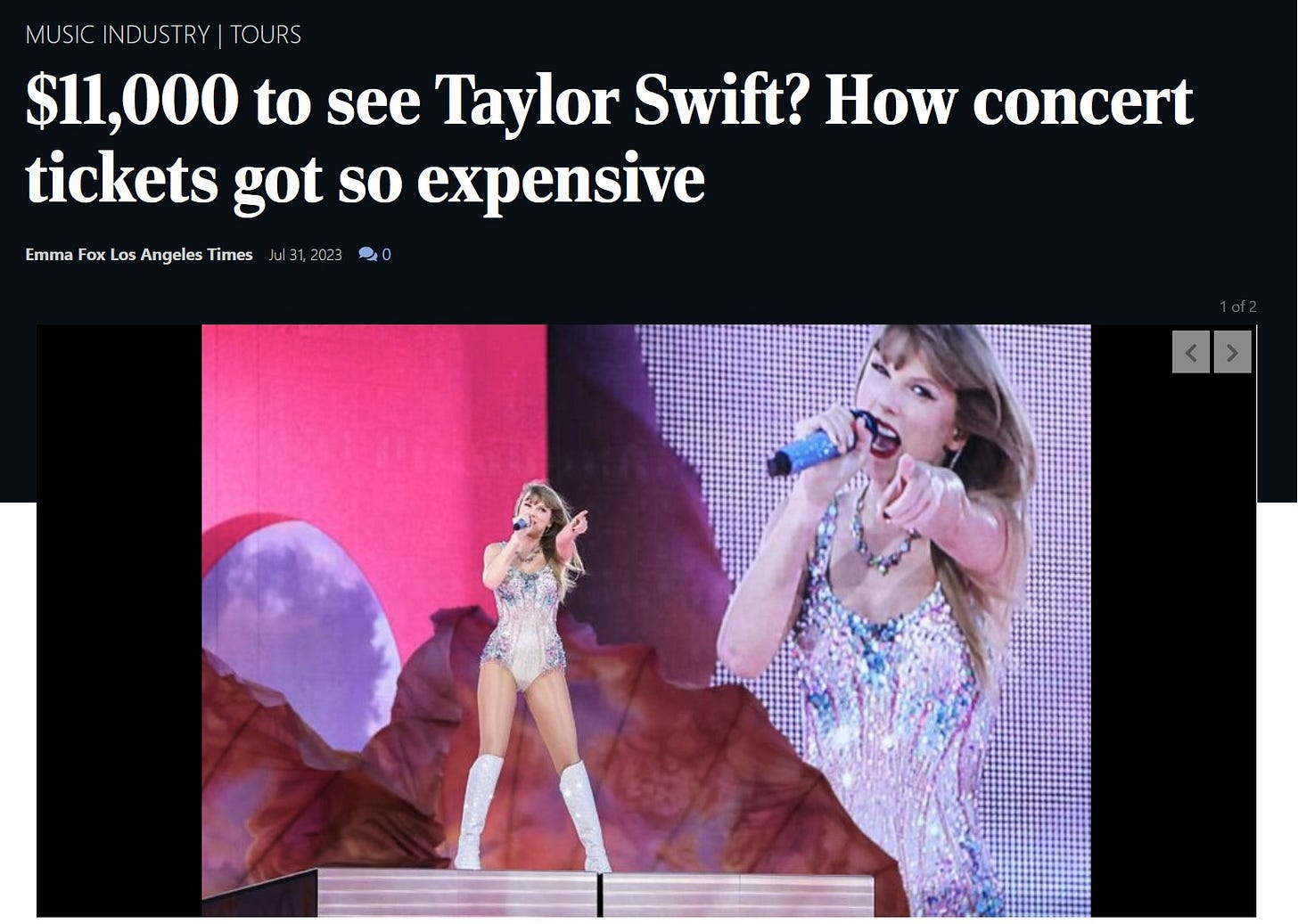
America has become one of the most unequal nations on the planet (on par with an average African nation), and when we perform an autopsy we’ll find many reasons why this is the case. I won’t list them here but I’m sure you can think of a few.
One of the less discussed malignancies, however, is the effect of having a globe-spanning communications network that focuses our attention on a small cabal of people and organizations. There’s even a name for this phenomenon, it’s called a power law 👇 and it suggests that rewards accrue exponentially.
The power law can be used to describe a phenomenon where a small number of items is clustered at the top of a distribution (or at the bottom), taking up 95% of the resources. In other words, it implies a small amount of occurrences is common, while larger occurrences are rare. For example, where the distribution of income is concerned, there are very few billionaires; the bulk of the population holds very modest nest eggs.
All of the following graphs came from this interesting article (which you’ll need a Medium account to read) about power laws.
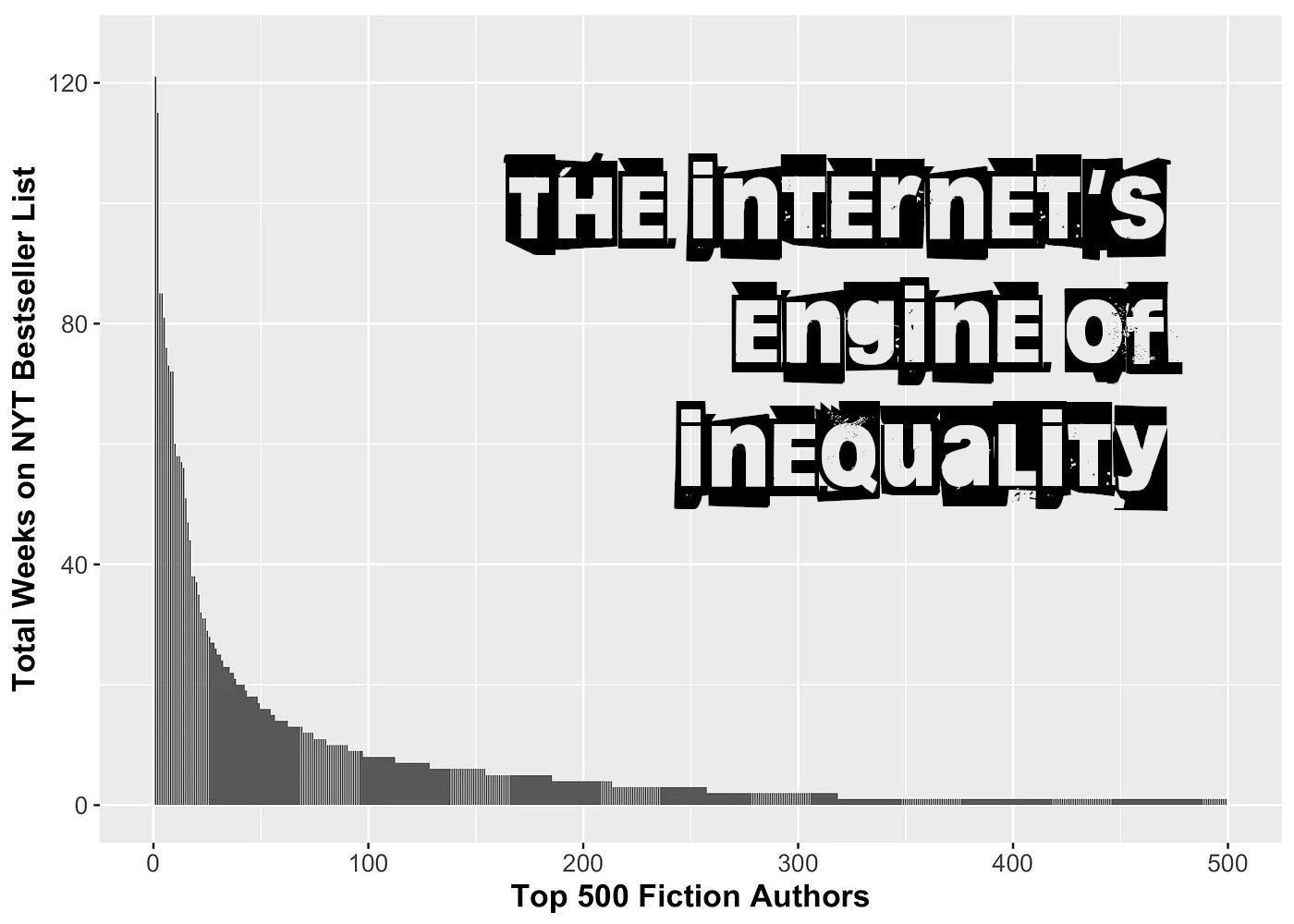
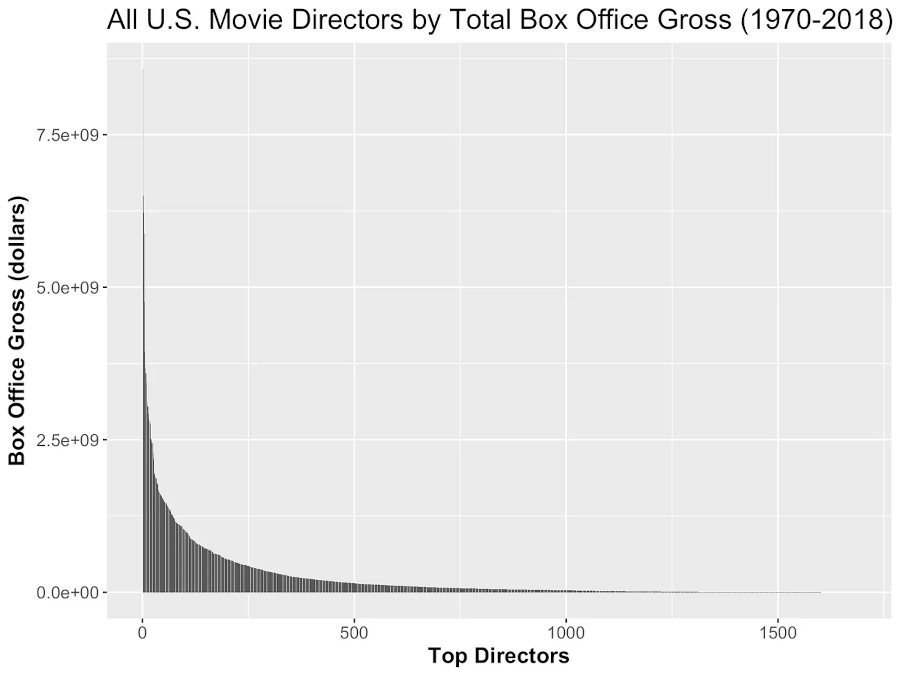
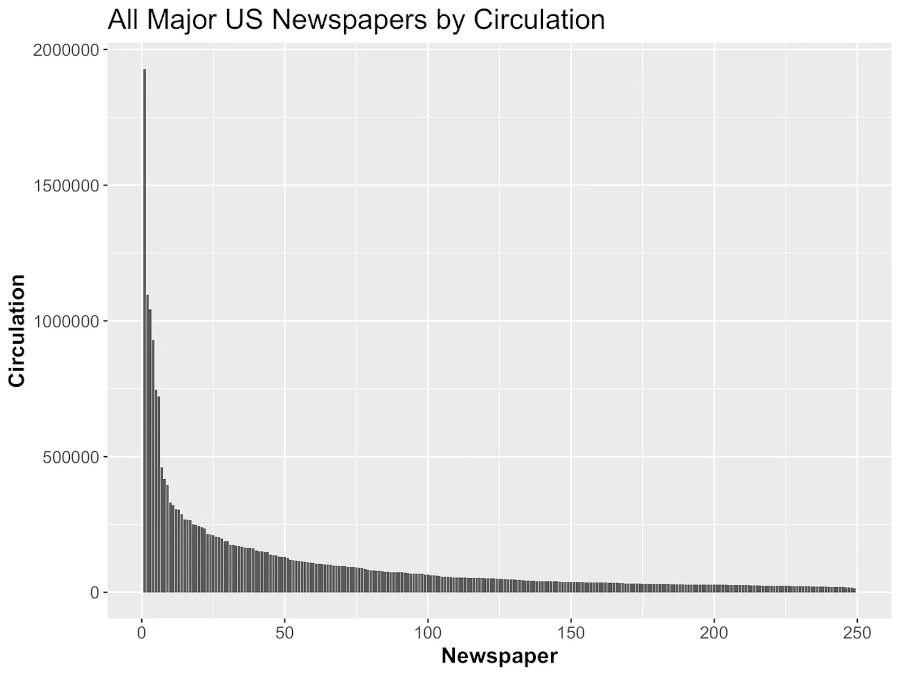
Power laws (the big get bigger) and the internet (instant global communication) are the reason that there’s a McDonald’s in Kiev. Without 24/7 communication, robust brand recognition due to global mass media and a multinational supply chain, poor Sergei would have to visit a café instead. His money would get distributed to the local instead of the global, and the power law wouldn’t be quite as powerful.
To be sure, power laws have existed for as long as humans have been romping around the planet. There is a natural tendency for prestige, influence and wealth to concentrate at the top. However, it’s my contention that the internet has taken a thing that used to happen in a 100 mile radius and turned it into a thing that happens in a 3,000 mile arc. This is good — outstanding! — for a select few and bad for just about everyone else.
On the bright side
Although I may come across as cynical on humanity, in real life I’m actually a cheerful person. I’m incredibly grateful for my life and I express appreciation daily. Humans love to ruminate on what’s gone wrong but too often fail to conjure gratitude when something goes right! Bitch about the bad if you must, but be sure to celebrate the positives too.
Looking on the bright side is another tactic I use to keep the dopamine flowing.
For example, we who believe in freedom of speech and unrestricted access to information feel a natural foreboding as the government expresses an ever-growing desire to tame the internet and contort the narrative to whatever suits its interests. Maybe a new Ministry of Truth isn’t a step in the right direction?
Well, let’s say that the powers that be intensify their campaign of kicking people offline, limiting our access to platforms, banishing content to the netherworld (if you don’t know what TOR is, now might be the time to learn) and otherwise slicing up the once free internet into manageable units. Echoes of the American West being demoted from free-range to enclosed with barbed wire demarcating the boundaries.
These online restrictions could have the unintended consequence of reducing the virality of those at the top of the power distribution. What would a Taylor Swift ticket sell for if nobody was allowed to post about the event on Instagram or Facebook? What about blockbuster movies if 30 million fewer Americans were on social media being subjected to advertising? I cannot predict the future, I’m the schmuck who bought NVDA puts at $280, but I can adjust my gaze to the sunny side and hope that if the internet goes from this,
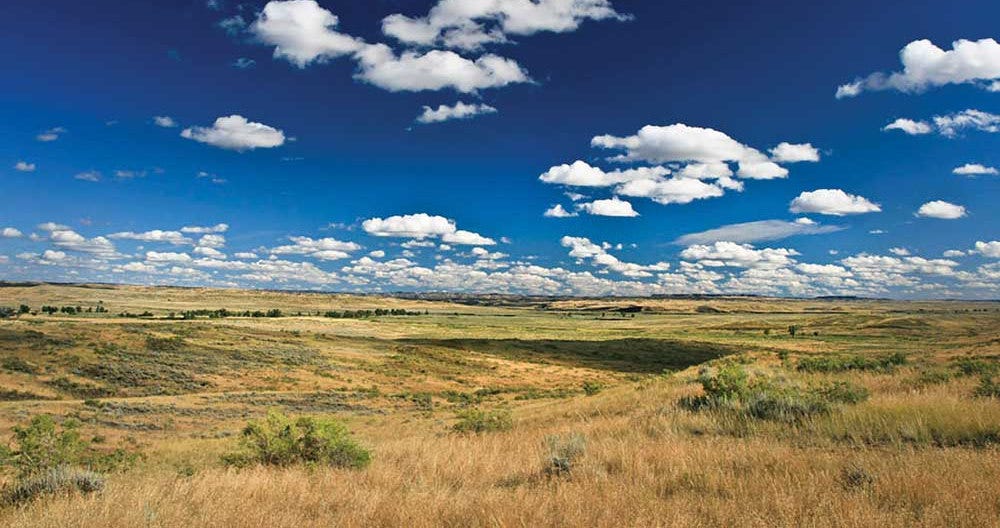
To this,
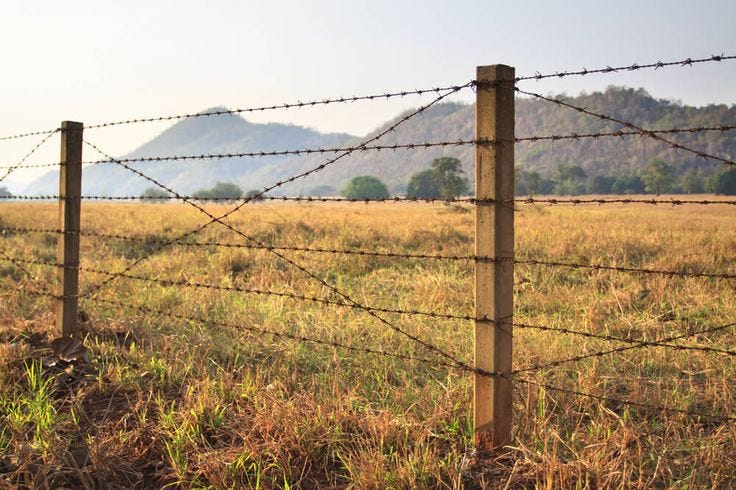
That money and attention will slowly filter back to the local. Maybe that’s wishful thinking, but I hope it isn’t. If this trend towards a single winner doesn’t get disrupted it means that in twenty years Jeff Bezos is going to own the entire United States and everyone is going to eat at McBezos whether they like senile dairy cow burgers or not.
Unlike Sergei, fast food on every corner is not my utopia so let us hope that the power laws can be tamed before our world descends into the ultimate manifestation of concentration.
